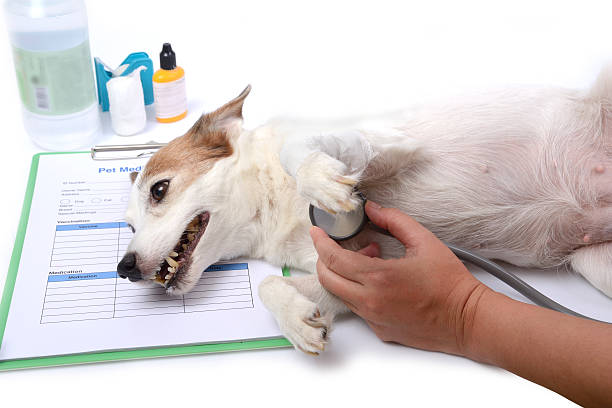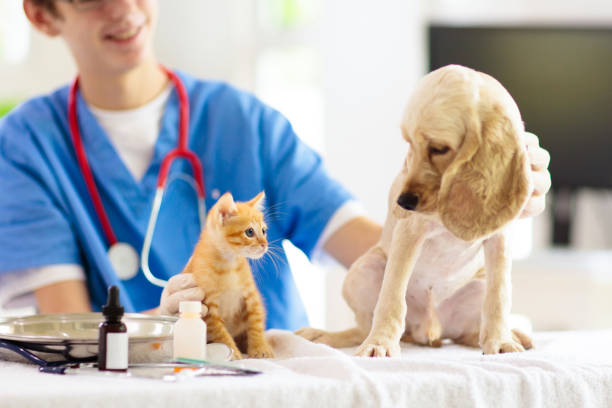Caring for a pet goes beyond simply feeding and sheltering them. Pets, whether dogs, cats, birds, or other animals, require consistent attention to their health, emotional well-being, and lifestyle. Proper pet care ensures they live a healthy, joyful, and fulfilling life. Here are essential pet care practices every pet owner should follow to keep their companions happy and thriving.
1. Provide a Balanced Diet
A well-balanced diet is the cornerstone of good health for your pet. Feeding your pet the right type of food tailored to their species, age, size, and health condition is crucial.
- High-Quality Nutrition: Choose foods that offer a balanced mix of proteins, fats, carbohydrates, vitamins, and minerals. Avoid artificial additives and fillers, and opt for whole, natural ingredients whenever possible.
- Proper Portions: Overfeeding can lead to obesity and related health problems, while underfeeding can deprive your pet of necessary nutrients. Follow feeding guidelines based on your pet’s specific needs and consult your vet if you’re unsure.
- Hydration: Fresh water should always be available for your pet. Hydration is essential for digestion, energy, and temperature regulation. Ensure water bowls are regularly cleaned and refilled.
2. Regular Exercise and Playtime
Exercise is vital to your pet’s physical health and emotional well-being. It helps prevent obesity, strengthens muscles, and improves cardiovascular health.
- Dogs: Daily walks, playtime, and activities like fetch or agility training keep dogs mentally and physically stimulated. Tailor the exercise to your dog’s age, breed, and energy level.
- Cats: Cats benefit from interactive play, such as chasing toys or climbing structures like cat trees. These activities satisfy their natural hunting instincts while keeping them active.
- Small Animals: Even small pets, such as rabbits and guinea pigs, need exercise. Providing them with space to move around and stimulating toys can prevent boredom and health issues.
- Tip: Consistent play and exercise also strengthen the bond between you and your pet, providing them with companionship and reducing behavioral problems.
3. Routine Veterinary Check-Ups
Regular veterinary care is essential to monitor your pet’s health and detect potential issues early.
- Annual Exams: Routine check-ups help identify health concerns such as dental problems, obesity, or early signs of disease. Regular vaccinations, parasite prevention, and dental care are critical for their long-term health.
- Preventive Care: Flea and tick prevention, heartworm medications, and deworming should be part of your pet’s regular care routine, especially if they spend time outdoors.
- Spaying/Neutering: Spaying or neutering your pet can prevent unwanted litters and reduce the risk of certain cancers and behavioral issues.
- Tip: Keep a record of your pet’s vaccinations, medications, and any health changes, and schedule regular vet visits even if your pet seems healthy.
4. Grooming and Hygiene
Regular grooming not only keeps your pet looking their best but also helps maintain their health by preventing skin issues and detecting problems early.
- Brushing: Regular brushing removes loose hair, dirt, and prevents matting in dogs and cats. It also stimulates circulation and helps you spot skin issues or parasites.
- Bathing: Bathing your pet as needed, based on their species and breed, helps keep their coat clean and free of debris. Use pet-specific shampoos to avoid skin irritation.
- Nail Trimming: Keeping your pet’s nails trimmed prevents discomfort and potential injuries from overgrown nails.
- Dental Care: Regular teeth brushing and dental treats help prevent plaque buildup, bad breath, and oral diseases.
- Tip: Start grooming routines early in your pet’s life so they become comfortable with the process. Grooming is also an excellent opportunity to bond with your pet.
5. Mental Stimulation and Enrichment
Mental stimulation is just as important as physical exercise for your pet’s happiness and well-being. Boredom can lead to destructive behavior, anxiety, and depression in pets.
- Interactive Toys: Puzzle toys, treat-dispensing toys, and engaging games provide mental challenges for your pet.
- Training: Training sessions are mentally stimulating and improve your pet’s behavior and manners. Positive reinforcement training can also help strengthen your relationship with your pet.
- Environmental Enrichment: Create an enriching environment by providing scratching posts, climbing trees, tunnels, or safe outdoor access for cats, and a variety of toys, wheels, and tunnels for small pets.
- Tip: Change up your pet’s toys and games regularly to keep things fresh and exciting.
6. Emotional Care and Attention
Your pet’s emotional well-being is closely tied to their physical health. Pets need love, attention, and companionship to thrive.
- Socialization: Socialization with other pets and humans is critical, especially for dogs. Regular interaction helps reduce anxiety, fear, and aggression in unfamiliar situations.
- Bonding Time: Spending quality time with your pet through play, petting, or simply sitting together strengthens your bond and makes them feel secure and loved.
- Comfortable Living Environment: Ensure your pet has a cozy, quiet space to rest and feel safe. This could be a bed in a quiet area for dogs or a secluded perch for cats.
- Tip: Recognize signs of stress or anxiety in your pet, such as excessive grooming, hiding, or destructive behavior, and address the underlying causes.
7. Safety and Supervision
Ensuring your pet’s safety is a critical component of responsible pet care.
- Pet-Proof Your Home: Remove hazards such as toxic plants, chemicals, and small objects that could be ingested. Ensure your pet doesn’t have access to areas where they could injure themselves.
- Identification: Make sure your pet has a collar with identification tags, and consider microchipping them to increase the chances of being reunited if they get lost.
- Leashes and Fencing: When outside, always use a leash or ensure your yard is securely fenced. This prevents accidents or escapes that could endanger your pet.
- Tip: Keep an emergency kit with supplies for your pet, including food, medications, and important contact information, in case of disasters or emergencies.
Conclusion
Caring for a pet is a rewarding responsibility that requires dedication and knowledge. By providing balanced nutrition, regular exercise, grooming, veterinary care, and mental enrichment, you’ll ensure your pet enjoys a healthy and joyful life. Building a strong bond through attention and love will enrich both your pet’s life and your own, creating a lasting and fulfilling companionship.



